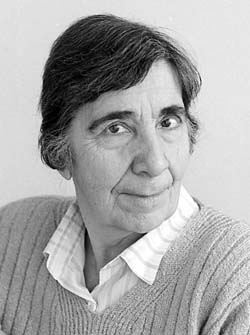Institute of Rome open to all

The Vatican news service ZENIT recently interviewed Sister Marie Laetitia, Ph.D., the principal of St. Dominic’s Institute of Rome. The discussion centered on the possibility of normal inter-confessional and inter-religious coexistence, in particular the education of children of different faiths in a common educational environment. In other words, it deals with the problem of tolerance.
Tolerance is a very sensitive social value. Many people “profess” it, but most often only for as long as their own faith or beliefs remain “on top.” Sister Marie’s thoughts are further proof that respect for others, for people’s views and faith, is not born out of nothing or as a result of declarations or promises — tolerance has to be nurtured and instilled from childhood, which is no simple task and sometimes a thankless business. St. Dominic’s Institute of Rome has 400 pupils from 50 countries, including Christians of various denominations, Muslims, and nonbelievers.
In her interview Sister Marie answers some of the vital and socially important questions that Ukraine also faces today.
What is the role of Catholic schools in a multireligious society in a globalized world? How can they carry out their task when their pupils belong to several religions or no religion? What methods are crucial to the educational process? Given the institute’s Catholic identity, is the presence of numerous children of other religions a problem? What, in your opinion, is the most important aspect of teaching and raising children?
Let us begin with Sister Marie’s answer to the last question: “Like many Catholic schools, we emphasize the education of the whole person, not just academics. It is very important that an approach like this be in line with what most parents want, regardless of their religious affiliation. We want to provide each child with the fundamental values that will enable him to face life. Therefore, it is necessary to start with each child from where he is, to make him grow from his own life, without trying to put him into a mold.”
One of the main goals of the institute, on which much attention is focused, is to teach the pupils to coexist as part of a community. After all, other people are always different from us, even when they are of the same nationality, not to mention a different race or religion. It is very important to convince each pupil that other people are always worthy of respect, regardless of differences. It is not easy to teach this. It is not easy to accept what one does not understand in others: their habits, dress style, responses to certain events, faith, etc.
During the educational and communication process at St. Dominic’s the pupils’ behaviors and responses gradually change: they open up to one another, learn to listen and respect their peers, find things that they have in common, and discover their interest in something new. This is no simple task for teachers, just as normal coexistence among people in this world is not easy. The greater the differences among people, the more difficult the teacher’s task. The institute’s teachers rejoice when they see the children uniting. Cases of genuine racism are rare. There might be discussions, but not a real rejection of the other’s color.
Interestingly enough, the study of religion is not a significant problem at St. Dominic’s Institute, though it is certainly the subject of discussions and questions. For example, the question of why Catholics, or Christians, are always right, and not Muslims, is constantly asked. Who has the right to judge? “But we respect Muslims in their religion. We do not engage in proselytism. If a Muslim asks to participate in catechism classes, we always ensure that the parents give their agreement. Respecting differences of worldviews and beliefs is a way of fostering ecumenism,” Sister Marie said.
In general, the institute respects the freedom of its pupils’ beliefs. If a child comes from a non-religious family, the parents are informed during registration that the teaching of religion is part of the curriculum. Non-Catholic Christians are also asked to attend catechism classes.
In many other cases, however, children have the right to choose. Recently, the institute’s representatives were invited to take part in an audience with Pope Benedict VI. Muslim pupils were also invited. Very few refused, choosing instead to take part in it as their school’s “family celebration.” They did so because they like the school and have the right to choose freely, and teachers respect their decision, no matter what it is.
Respect for pupils comes first. There can never be too much respect at any school, respect in the broadest sense of this word. It is not only about accepting the others in their difference. It is also about respect for the environment and school materials.
In her interview Sister Marie also discusses the role of teachers. “You will not gain authority by hammering in warnings, but through the quality of your presence. What matters is the personal effort you put into the relationship,” she tells them. After all, you can be present in a classroom without being obtrusive.
Perhaps such multi-confessional schools can become a guarantee of religious peace and tolerance.






